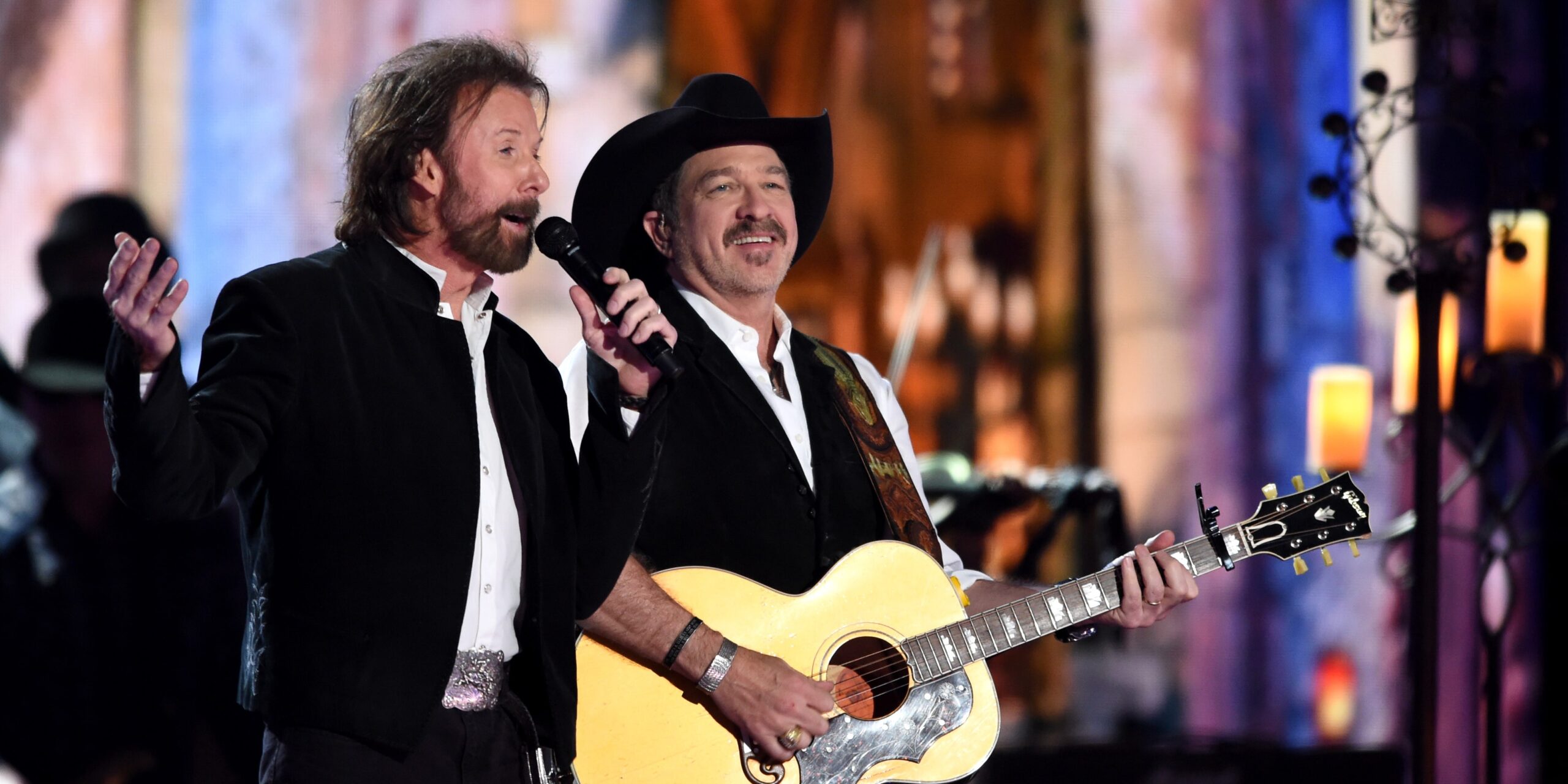
A Joyful Plea Wrapped in the Ache of Longing
When Brooks & Dunn released “My Maria” in 1996 as the lead single from their album Borderline, it didn’t just top the Billboard Hot Country Songs chart—it etched itself into the soul of country music’s evolving tapestry. A vibrant reimagining of B.W. Stevenson’s 1973 original, this rendition became one of Brooks & Dunn’s most celebrated hits, earning them a Grammy Award for Best Country Performance by a Duo or Group with Vocal. But beyond its commercial triumph lies something deeper: a song that pulses with urgency, a romantic invocation that transforms yearning into celebration.
At first blush, “My Maria” is a jubilant declaration, propelled by Ronnie Dunn’s soaring vocals and the duo’s unmistakable fusion of honky-tonk energy with radio-polished finesse. Yet beneath its effervescent arrangement lies a more textured emotional terrain—one where desperation dances with devotion, and the act of calling out to a lover becomes both benediction and release.
The song opens mid-reverie—“My Maria / Don’t you know I’ve come a long, long way?”—as though the listener has stumbled into an ongoing plea. It’s not merely a song about missing someone; it’s about realizing that absence has carved a hollow so deep that only reunion can mend it. Dunn’s voice carries this ache with aching clarity, his phrasing stretching across syllables like a man clinging to memory itself. The emotional architecture of the song is built upon contrast: between the buoyant guitar riffs and the melancholy embedded in the lyrics; between the joy of recalling love and the pain of its distance.
Though “My Maria” was originally penned by B.W. Stevenson and Daniel Moore, Brooks & Dunn’s interpretation breathes new life into its bones. They don’t simply cover the song—they recontextualize it within their signature blend of neo-traditionalist country and arena-ready production. Where Stevenson’s original leaned more into country-rock introspection, Brooks & Dunn imbue their version with gospel-tinged intensity and a rhythmic propulsion that elevates longing into exaltation.
There’s also something deeply spiritual about the invocation of “Maria.” She is not just a lover; she is muse, savior, sanctuary. Each repetition of her name becomes mantra-like—a ritualistic summoning in hopes that she might return and restore what has been lost. In that sense, “My Maria” transcends its genre boundaries, tapping into a universal ache—the human yearning for connection, for wholeness.
In the landscape of 1990s country music—a time when line dancing was king and Nashville was straddling tradition and pop ambition—“My Maria” stood as a shimmering example of emotional clarity wrapped in commercial sheen. It reminded listeners that even within three-and-a-half-minute bursts of harmony and hooks, profound truths could be found: that love, once lost, can become sacred; and that sometimes, all we can do is sing our longing into light.